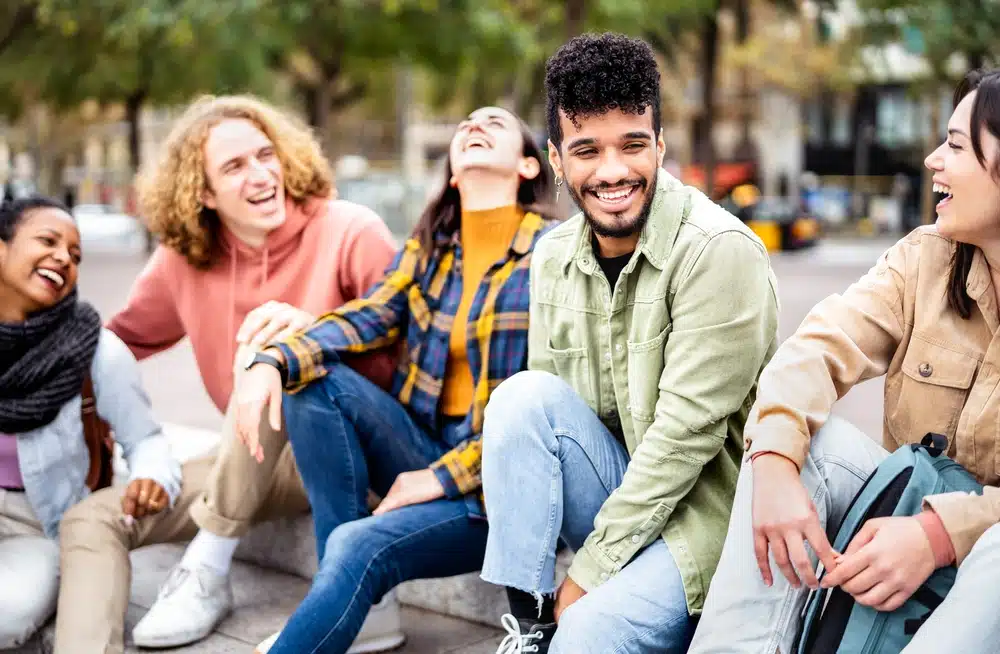Social Life at Princeton
Princeton’s social life offers a vibrant tapestry of experiences, uniting students from all walks of life. Its rich traditions and events create memories that last a lifetime. Whether you’re seeking intellectual discourse, artistic showcases, or just a good old-fashioned gathering, this is where bonds are forged. Ready to embark on a journey? Let’s explore what truly makes Princeton’s social scene unique.
Understanding the Social Fabric of Princeton University
The social dynamics that underpin life at Princeton University are diverse and multifaceted. The foundation of its lively community rests on various platforms, some of the most significant of these being student organizations, residential colleges, and Greek fraternities and sororities.
Each of these contributes distinct elements to the social landscape of the school, forming a rich tapestry of experiences and opportunities for students.
The Role of Student Organizations in Social Life
Student organizations are the backbone of the social life at Princeton University. They provide spaces for students to pursue interests, develop friendships, and participate in campus life. With over 300 clubs covering activities from academics, arts, and politics, to service, students have an opportunity to not only explore their interests but make meaningful connections in the process.
Outside of their specific activity, these organizations often host communal events, which provide more opportunities to mingle and foster a spirit of community within the campus.
For example, the Princeton Debate Society, one of the most prominent student organizations on campus, not only offers students a chance to engage in rigorous intellectual discussions but also organizes social gatherings where members can relax and socialize. These events range from casual movie nights to formal banquets, creating a diverse range of social experiences for students.
Similarly, the Princeton University Art Club not only provides a platform for students to explore their artistic talents but also organizes gallery visits, art workshops, and social mixers. These activities allow students to bond over their shared passion for art and build lasting friendships.
Residential Colleges: A Hub for Social Activities
Residential Colleges at Princeton act as smaller communities within the larger university context. Each college hosts a variety of events, including themed dinners, study breaks, and mentorship programs. These social activities provide students with an opportunity to bond with peers, faculty, and staff outside the classroom.
Additionally, each Residential College has an array of student government and leadership opportunities, adding another layer of social interactions and learning experiences.
For instance, Wilson College, known for its vibrant social scene, organizes an annual “Wilsonpalooza” event, where students come together to enjoy live music, food, and games. This event not only fosters a sense of community within the college but also serves as a platform for students to showcase their talents and connect with others who share similar interests.
Moreover, Residential Colleges often collaborate to host joint events, such as inter-college sports tournaments, talent shows, and cultural festivals. These collaborative efforts further strengthen the social fabric of Princeton University, promoting inclusivity and camaraderie among students from different backgrounds.
The Influence of Greek Life at Princeton
Greek life is another important element in Princeton’s social fabric. Although not officially recognized by the University, fraternities and sororities play a significant role in shaping social life. They host social events regularly, promote community service, and provide additional networks of support for their members.
Despite some controversies, the Greek system continues to be a popular social outlet for many Princeton students, offering a sense of camaraderie and connection within each chapter.
For example, Alpha Phi Omega, a co-ed service fraternity, organizes various community service projects throughout the year. These projects not only allow members to give back to the local community but also provide opportunities for them to bond and form lasting friendships based on shared values and a commitment to service.
Similarly, the sorority Delta Delta Delta hosts an annual philanthropy event called “Tri Delta’s Pancake Palooza,” where students come together to enjoy delicious pancakes while raising funds for a charitable cause. This event not only fosters a sense of unity among sorority members but also allows them to engage with the broader Princeton community and make a positive impact.
In conclusion, the social fabric of Princeton University is intricately woven through the various platforms of student organizations, residential colleges, and Greek fraternities and sororities. These elements provide students with a multitude of opportunities to explore their interests, form meaningful connections, and contribute to the vibrant community that defines Princeton’s social life.
The Impact of Academics on Social Interactions
Academic pursuits and intellectual stimulation form an integral part of social interactions at Princeton. The dynamic between study and social life, as well as interdisciplinary collaborations, often foster a unique form of social culture within the university.
Princeton University is renowned for its rigorous academic programs and commitment to excellence. The pursuit of knowledge is not limited to the classroom; it permeates every aspect of student life, including social interactions. The intellectual curiosity that drives students to engage in academic pursuits also fuels their desire to connect with others who share their passion for learning.
Balancing Study and Social Life
As a university with a rich academic history, Princeton encourages its students to cultivate a balance between their academic responsibilities and social life. While the demands of coursework can be intense, students find ways to incorporate socialization into their study routines.
Study groups and discussion sessions often evolve into meaningful friendships, blurring the lines between academic and social circles. The late-night study sessions in the library become opportunities for bonding and camaraderie, as students support and motivate each other to excel academically.
Furthermore, the academic rigor pushes students to seek balance and, consequently, promotes networking within study spaces, adding a unique dynamic to the overall social experience. Students not only exchange ideas and knowledge but also build lasting relationships that extend beyond their time at Princeton.
Interdisciplinary Collaborations and Social Connections
In a quest to promote a broad understanding of the world, Princeton University fosters interdisciplinary collaborations not just between departments but also among students. The university recognizes that the most innovative ideas often emerge at the intersection of different disciplines.
Academic collaboration creates opportunities for socialization, bringing together students from diverse backgrounds and interests. When students from different fields of study come together to work on a project or engage in research, they bring their unique perspectives and expertise to the table. This interdisciplinary approach not only enriches the academic experience but also fosters social connections.
These collaborations often result in intellectual discussions that extend beyond the classroom, nurturing a nourishing environment where social connections and ideas bloom. Students engage in lively debates, challenge each other’s assumptions, and broaden their horizons through exposure to different viewpoints.
Moreover, the interdisciplinary nature of these collaborations encourages students to step out of their comfort zones and interact with individuals they may not have otherwise met. This exposure to diverse perspectives fosters empathy, understanding, and a sense of community among students.
In conclusion, academics play a significant role in shaping social interactions at Princeton University. The pursuit of knowledge and intellectual growth not only brings students together but also creates a vibrant social culture that is unique to the university. The balance between study and social life, as well as the interdisciplinary collaborations, contribute to a rich and fulfilling college experience for Princeton students.
Cultural and Diversity Aspects of Social Life
The tapestry of social life at Princeton University is enriched by the cultures and diversity of its students. International student bodies and diversity-focused events play a pivotal role in creating an inclusive and dynamic social atmosphere.
Princeton University takes great pride in its commitment to fostering a global community. With students hailing from all corners of the world, the campus becomes a melting pot of cultures, languages, and traditions. The presence of international students brings a unique perspective to campus life, allowing for a truly global exchange of ideas and experiences.
Imagine walking through the campus and hearing a multitude of languages being spoken, from Mandarin and Spanish to Arabic and French. This linguistic diversity creates an environment where students can learn from one another, not only academically but also culturally.
International Students and Cultural Exchange
Princeton hosts students from around the globe, contributing to a vibrant and diverse campus culture. International students bring experiences from their respective cultures, paving the way for a truly global exchange on campus.
Whether it’s sharing traditional dishes during a potluck event or organizing cultural showcases, international students actively engage in promoting cross-cultural understanding. These interactions go beyond the classroom, allowing for friendships to blossom and a deeper appreciation for different perspectives to develop.
Furthermore, dedicated organizations and events are constantly facilitating conversations and celebrations centered around this diversity, making the campus a hotbed for cultural learning and bonding. From language exchange programs to international film festivals, students are encouraged to explore and embrace the richness of the global community they are a part of.
Celebrating Diversity through Social Events
Princeton University is deeply committed to inclusivity and regularly hosts social events to celebrate its diverse community. Events like cultural festivals, Pride Parades, and speaker series focused on social justice and equity contribute to the richness of social life on campus.
These events foster a sense of belonging among students from diverse backgrounds, making them feel valued and seen. Cultural festivals showcase the vibrant traditions and customs of different countries, allowing students to immerse themselves in a world of music, dance, and art. Pride Parades, on the other hand, create a space for the LGBTQ+ community and its allies to come together, celebrate diversity, and advocate for equality.
Additionally, speaker series focused on social justice and equity provide a platform for students to engage in meaningful discussions about pressing issues. These events not only educate but also inspire students to take action and make a positive impact on society.
Ultimately, the cultural and diversity aspects of social life at Princeton University go beyond mere representation. They serve as a catalyst for personal growth, fostering a deep appreciation for different cultures, and nurturing a sense of empathy and understanding among the student body.
Sports and Fitness in Princeton’s Social Scene
Sports and fitness weave another important thread in Princeton’s social fabric. The athletic programs and wellness activities at Princeton not only focus on physical health but also serve as platforms for community bonding.
Princeton University is home to a vibrant and dynamic sports culture that brings students together in the pursuit of athletic excellence. The campus buzzes with excitement on game days as students, faculty, and alumni come together to cheer on the Tigers in various sports.
The Role of Athletics in Social Bonding
With a rich tradition of competitive sports, athletics at Princeton University is an integral part of campus life. Whether it’s cheering on the Tigers at a football game, witnessing the grace of the women’s soccer team, or being part of an intramural sports team, the spirit of sport plays a significant role in student bonding and camaraderie.
When the Princeton Tigers take to the field or court, the atmosphere is electric. The cheers and chants reverberate through the stands as students proudly display their school spirit. The sense of unity and pride that comes from supporting the same team fosters a strong sense of community among students.
But it’s not just about the games themselves. Sporting events bring the community together in support and celebration, creating shared experiences and unifying the campus. Whether it’s a nail-biting overtime victory or a heartbreaking defeat, these moments become part of the collective memory of Princeton students, forging lasting connections.
Fitness and Wellness Activities for Socializing
Outside of competitive sports, Princeton promotes fitness and wellness activities that facilitate social connections. The university recognizes that physical well-being is not just about exercise but also about fostering relationships and building a sense of belonging.
Group exercises, such as yoga or Zumba classes, provide an opportunity for students to come together and engage in a shared pursuit of fitness. These classes not only promote physical health but also create a supportive and encouraging environment where students can connect with others who share similar interests.
Additionally, Princeton’s picturesque campus offers ample opportunities for outdoor recreation. From hiking trails to bike paths, students can explore the natural beauty of their surroundings while engaging in physical activity. These outdoor adventures often become social outings, with groups of friends embarking on hikes or bike rides together, enjoying both the physical exertion and the camaraderie that comes with it.
Wellness workshops and seminars further enhance the social aspect of fitness at Princeton. These events bring students together to learn about various aspects of well-being, such as nutrition, mental health, and stress management. Through interactive discussions and activities, students not only gain valuable knowledge but also have the chance to connect with peers who share a common interest in leading a healthy and balanced lifestyle.
These activities allow students to interact in a casual and relaxed setting and often form relationships that extend beyond the fitness realm. Friendships forged during a yoga class or a hike can blossom into lifelong connections, creating a supportive network that extends far beyond the gym or playing field.
The Role of Arts and Music in Social Life
The arts and music scene at Princeton creates a vibrant, creative atmosphere that deeply influences the university’s social life. From participation in arts groups to attending performances, the arts contribute significantly to the texture of student life at Princeton.
Participation in Arts and Music Groups
Arts and music groups at Princeton offer students opportunities to explore their creative sides. These organizations span the range from theater troupes, and acapella ensembles, to art collectives. Through shared passion and creative collaboration, students often form strong social ties.
Whether behind the scenes or on stage, these experiences provide unique platforms for students to express themselves and develop relationships.
Social Events Centered Around Arts and Music
The university also hosts a variety of arts and music events that are social in nature. Concerts, exhibitions, and performances are common on campus and not only showcase talent but also serve as communal spaces that foster social interactions.
By celebrating the arts, these occasions help students connect on a creative and expressive level, cultivating a deeply seated appreciation for arts within the campus community.









































